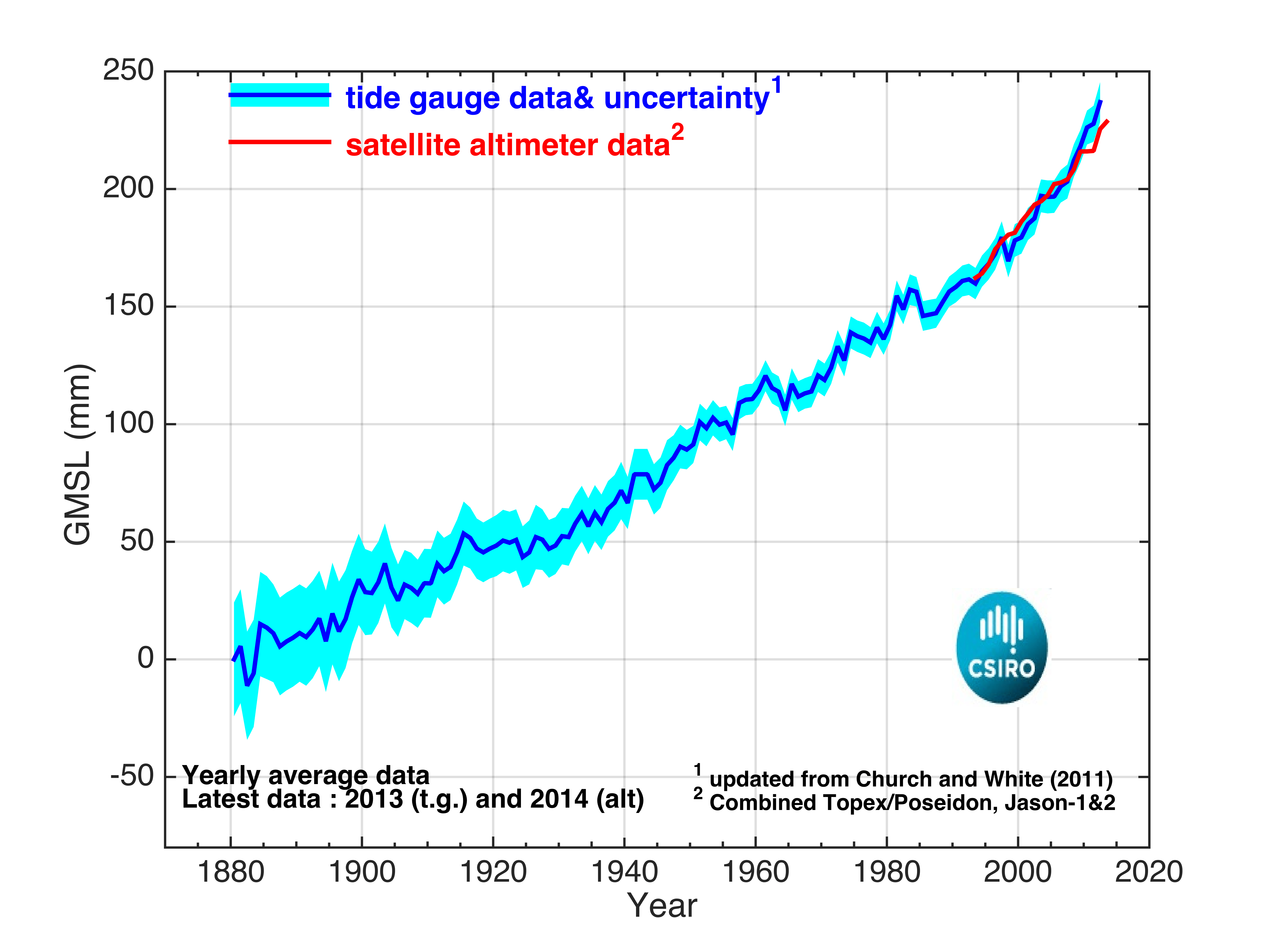
Rates of global sea level rise have accelerated since 1900, contrary to bloggers’ claims
Claim:
“there has not been a long-term distinctive change in sea level rise rates in the last 120 years”

Global data contradict claim of no acceleration in sea level rise
Claim:
The long-term tide gauge datasets are all in agreement that there is no acceleration
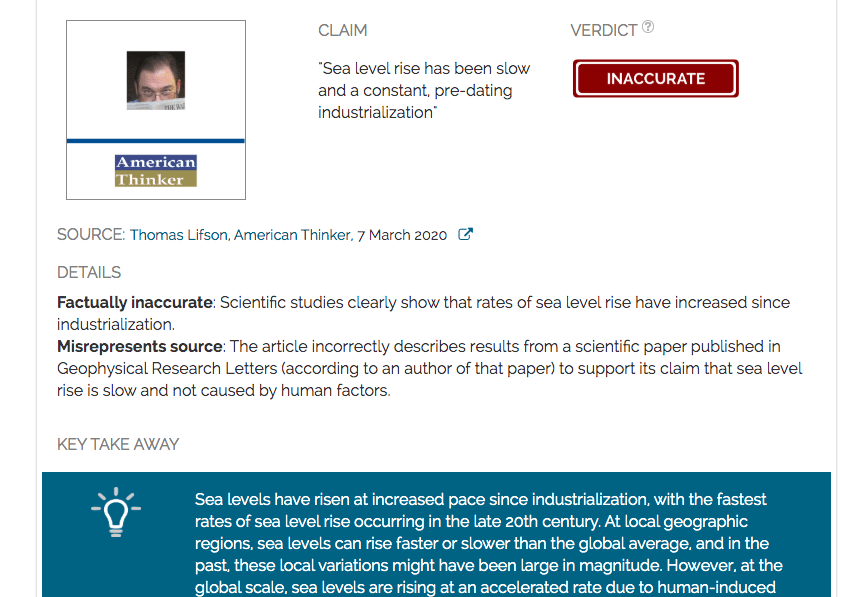
Sea levels rose faster in the past century than in previous time periods
Claim:
Sea level rise has been slow and a constant, pre-dating industrialization
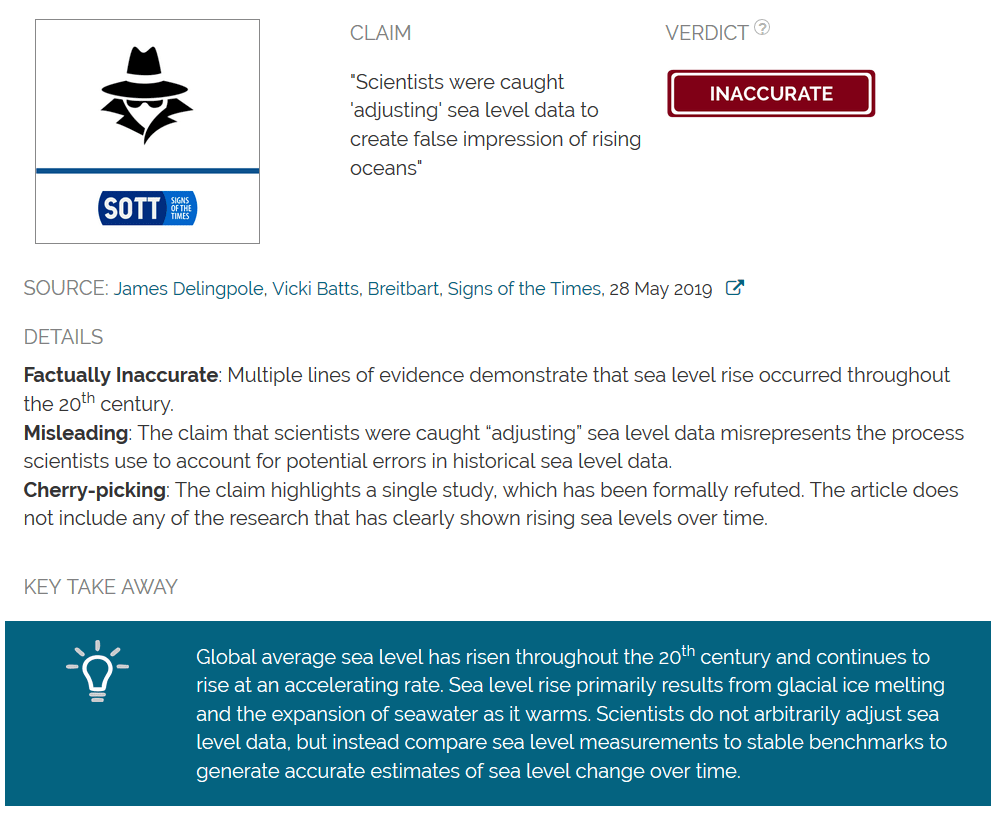
Sea levels have risen throughout the 20th century, contrary to claim in online articles
Claim:
Scientists were caught 'adjusting' sea level data to create false impression of rising oceans
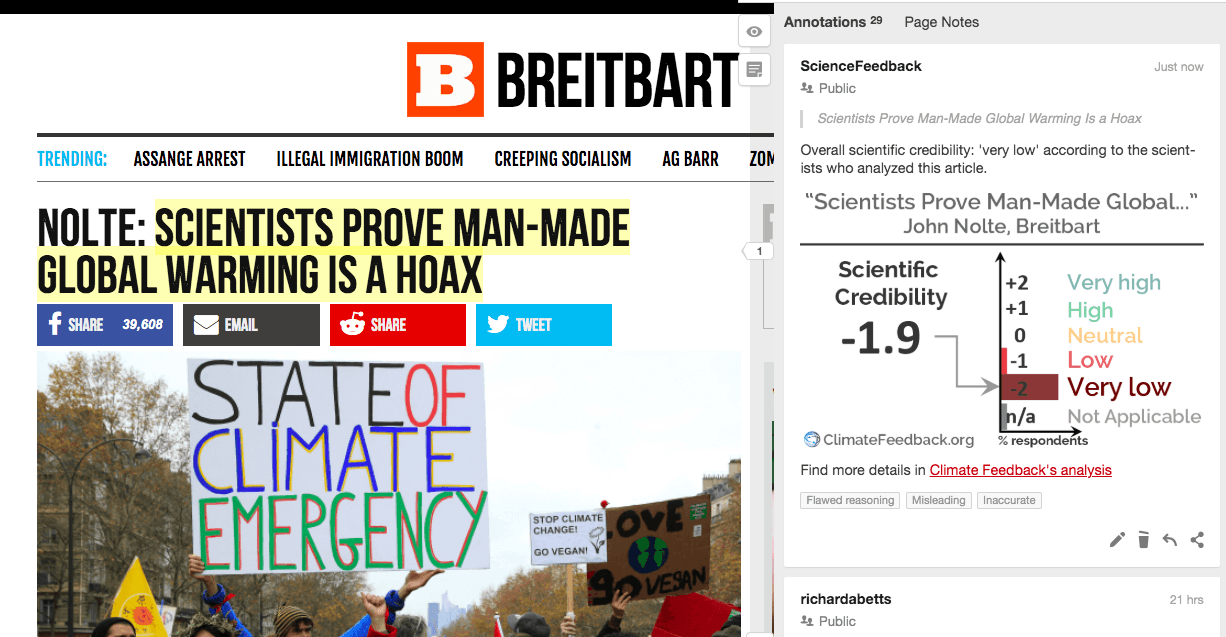
Breitbart article baselessly claims a study of past climate invalidates human-caused climate change
“By the reasoning of this article, if a rock rolled down a hill three million years ago, no human can be responsible for rolling a rock down a hill today. The fallaciousness of this reasoning is astounding.
It is hard to imagine that a well-intentioned person can so profoundly misunderstand the science. Assuming the author is acting in good faith, this article provides evidence that motivated reasoning can produce results that appear delusional to well-informed people.”
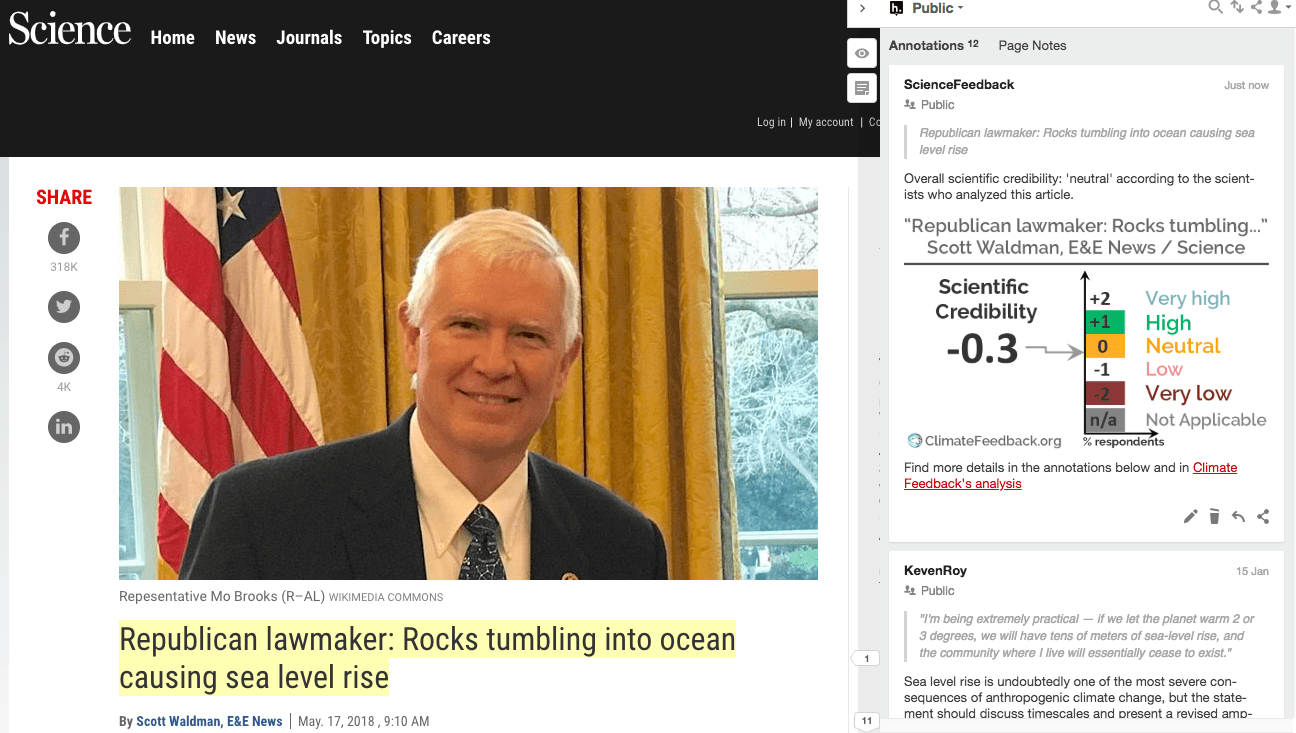
Story on congressman's incorrect claims about sea level rise could have corrected them more explicitly
“The comments from the members of the Committee suffer from severe inaccuracies and misconceptions, and citations of the invited climate scientist mostly address those issues.
In general, the views that go against our understanding of the climate change process are underlined and presented as such by the author, but rarely supported by statements or explanations that go beyond the immediate replies from the invited climate scientist. Some of the inaccurate statements quoted in the text are thus left with an incomplete challenge.”
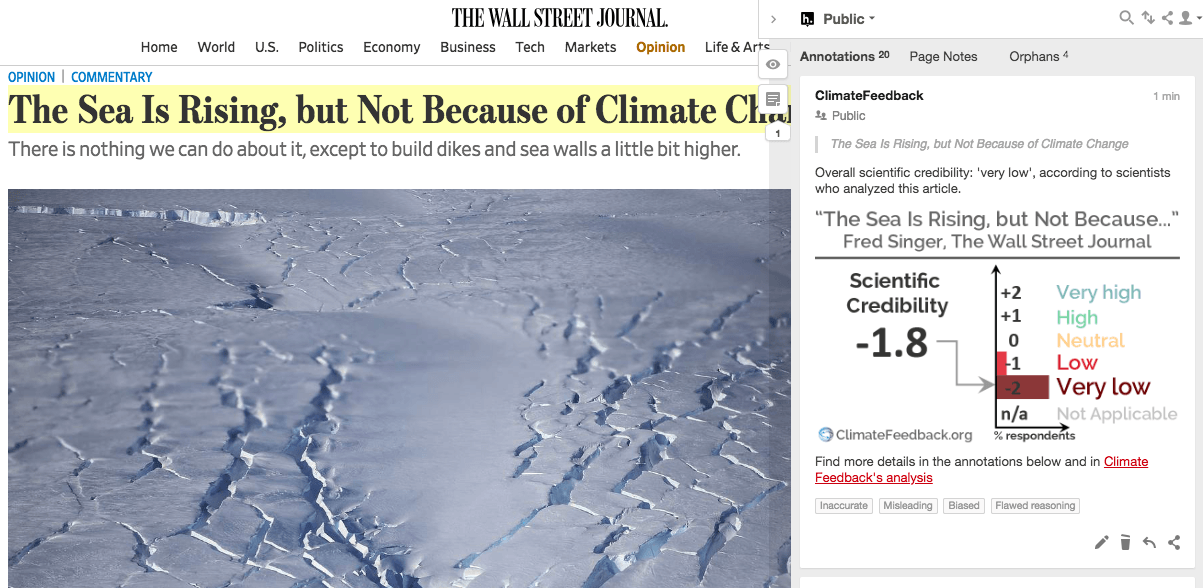
Wall Street Journal commentary grossly misleads readers about science of sea level rise
“The article has almost nothing to do with the modern state of sea-level science. The author tries to call into question that global warming causes sea-level rise, and does so by cherry-picking a short segment of data from 1915-1945, a time when data quality is poor and the warming signal small—a bizarre approach that could never pass scientific peer review and is apparently aimed at misleading a lay audience.”
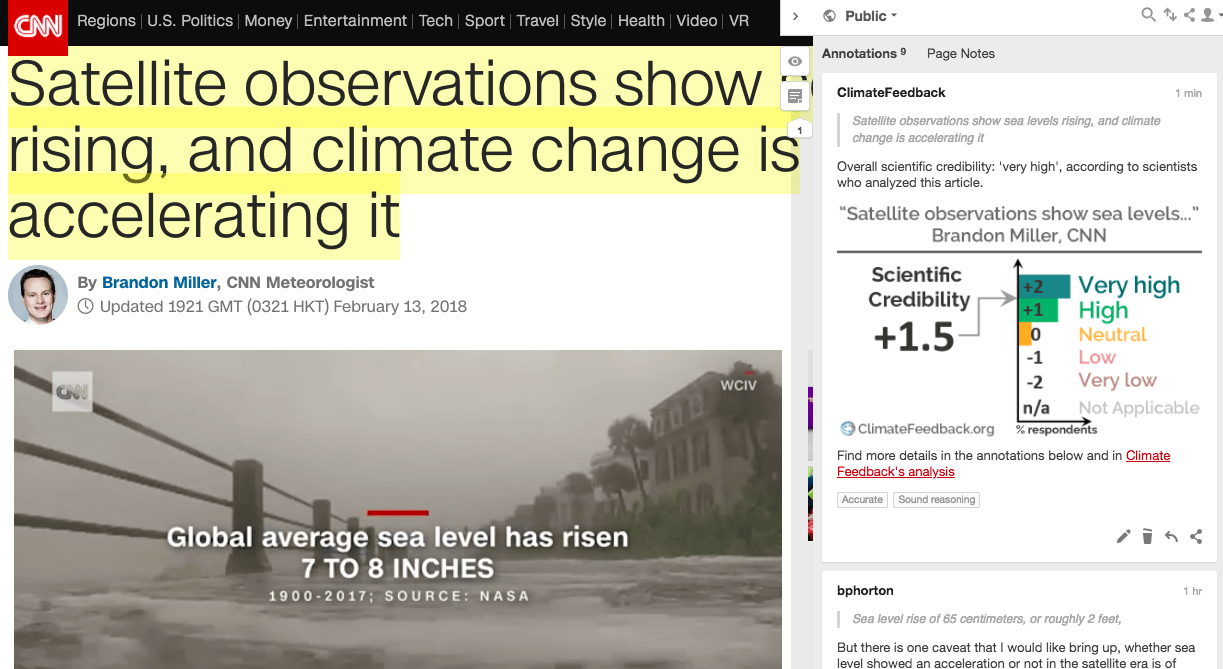
New satellite measurements show sea level rise is accelerating, as CNN accurately reports
“Global geological sea-level data, data from tide gauge and now satellite data all show that the rate of sea level rise is accelerating. These accelerations in sea level is a cause for great concern.”
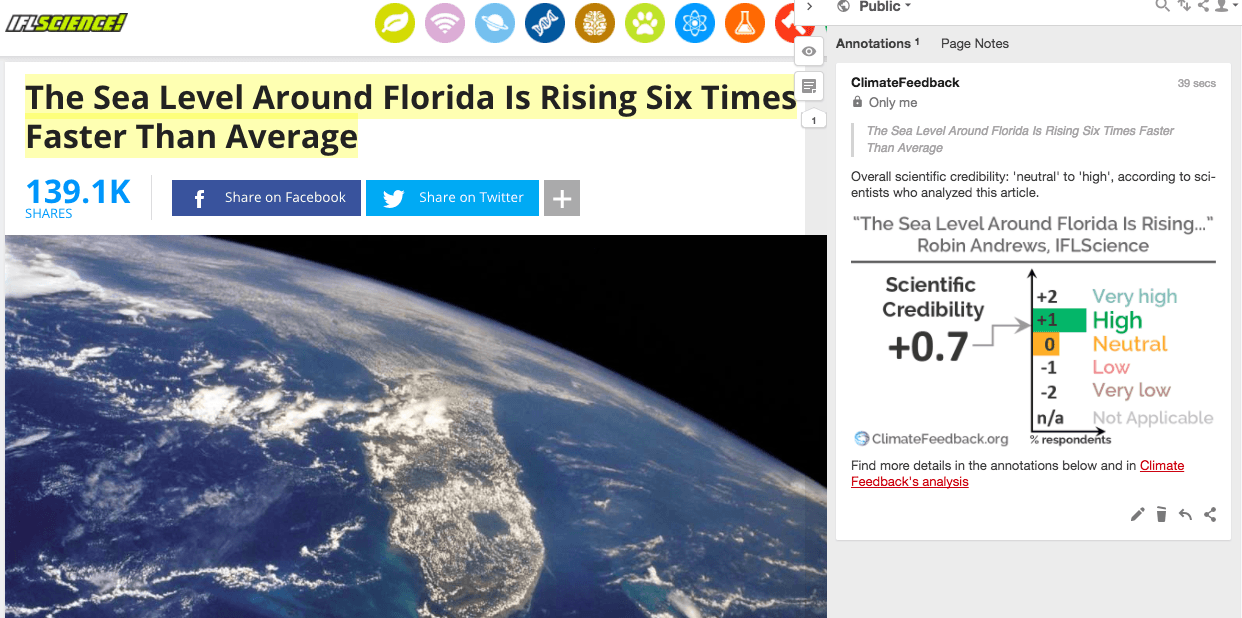
IFLScience story on Florida sea level rise somewhat unclear but generally correct
“While the information in this article is essentially correct, the links lead to loosely related articles published on the same website, rather than articles that directly support the statements made in the article. The explanation of the acceleration of sea level rise in Florida is oversimplified, probably because it is difficult to summarize concisely.”
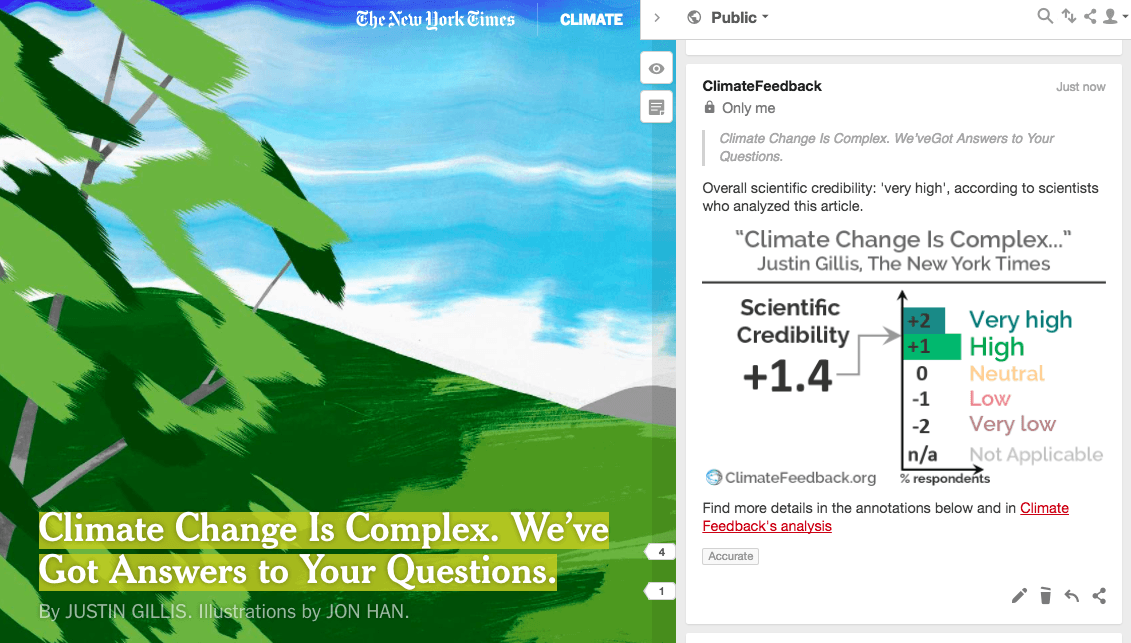
New York Times’ “straightforward answers” to common climate questions are accurate, too
This article in The New York Times serves as a primer by briefly answering seventeen basic questions about the cause and consequences of—and possible solutions to—climate change. Ten scientists reviewed the article, and generally found the answers to be highly accurate distillations of the research on that topic.
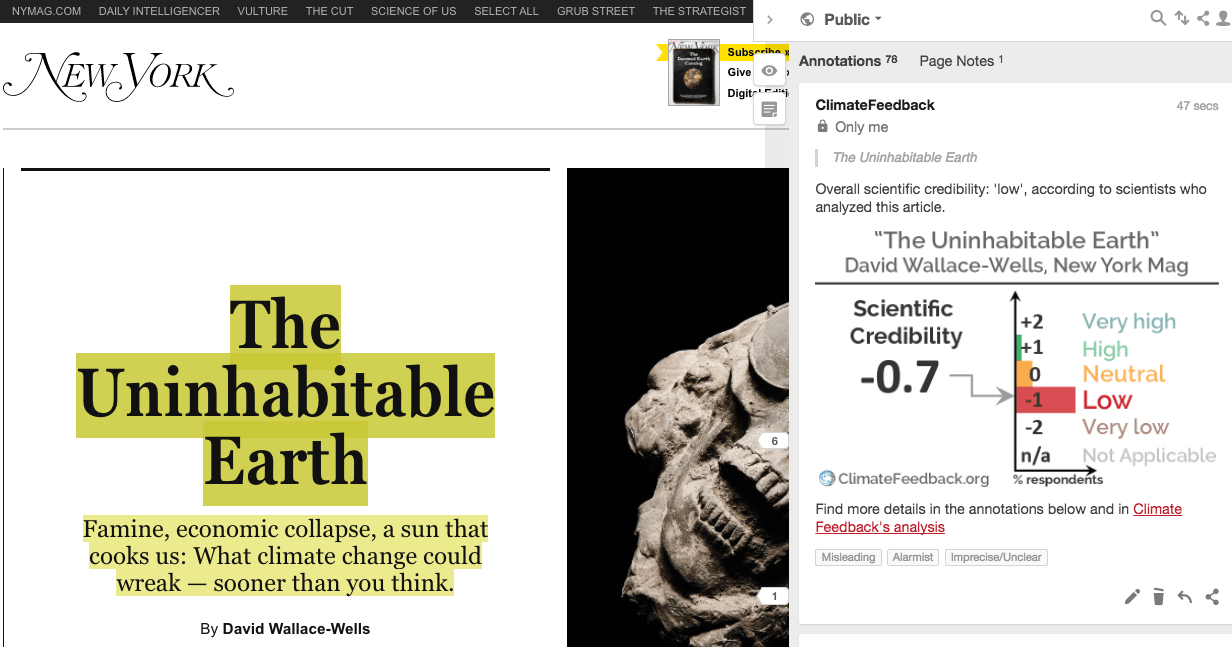
Scientists explain what New York Magazine article on “The Uninhabitable Earth” gets wrong
“While it is clear that ongoing warming of the global climate would eventually have very severe consequences, the concept of the Earth becoming uninhabitable within anywhere near the timescales suggested in the article is pure hyperbole. The author has clearly done very extensive research and addresses a number of climate threats that are indeed major issues, but generally the narrative ramps up the threat to go beyond the level that is supported by science.”
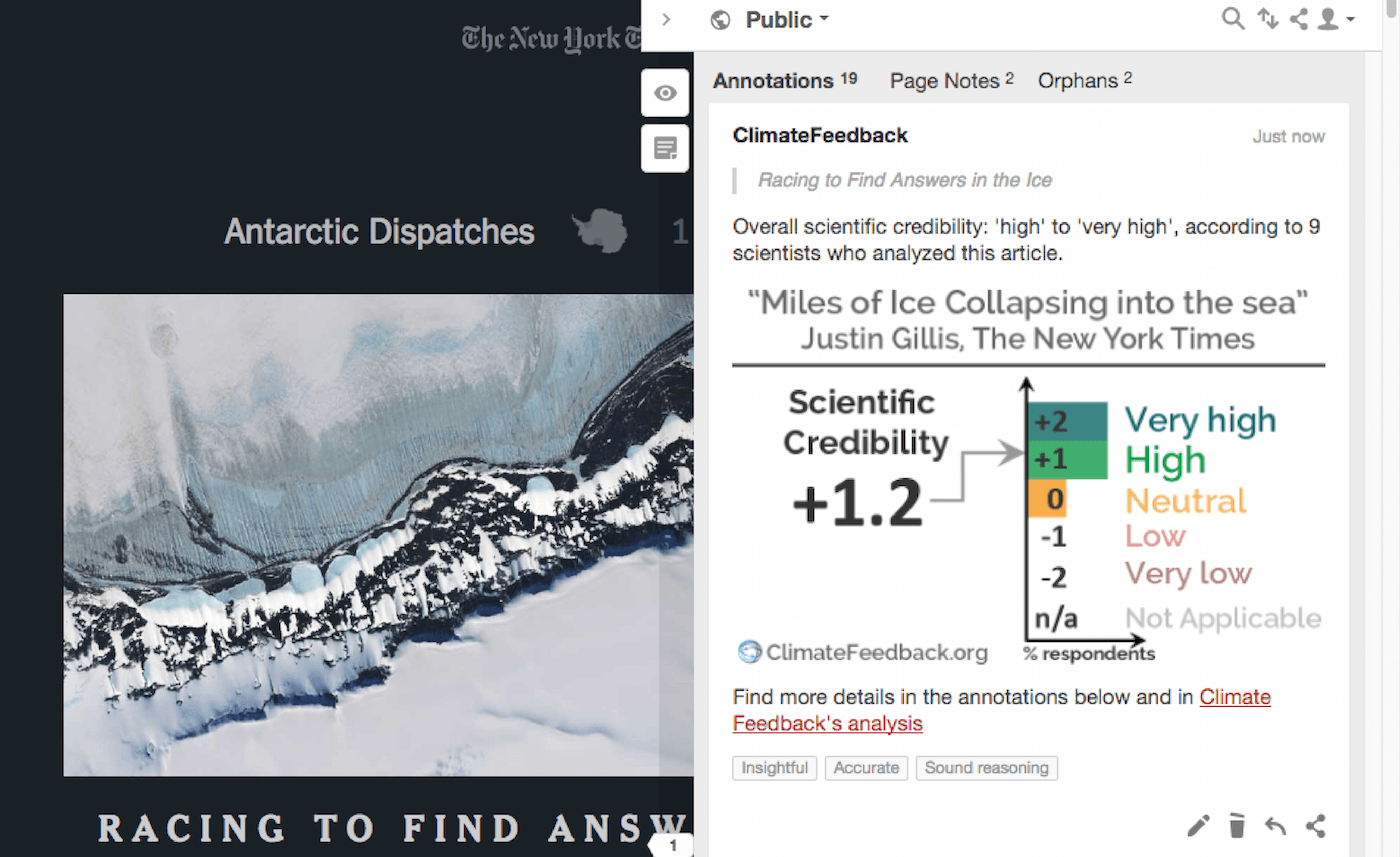
New York Times series accurately describes research on Antarctic ice sheets and sea level rise, but highlights uncertain studies
“Generally scientifically sound, but caution should be displayed before basing discussion solely on a single modeling study, especially when it incorporates fundamentally different processes relative to other contemporary models.”
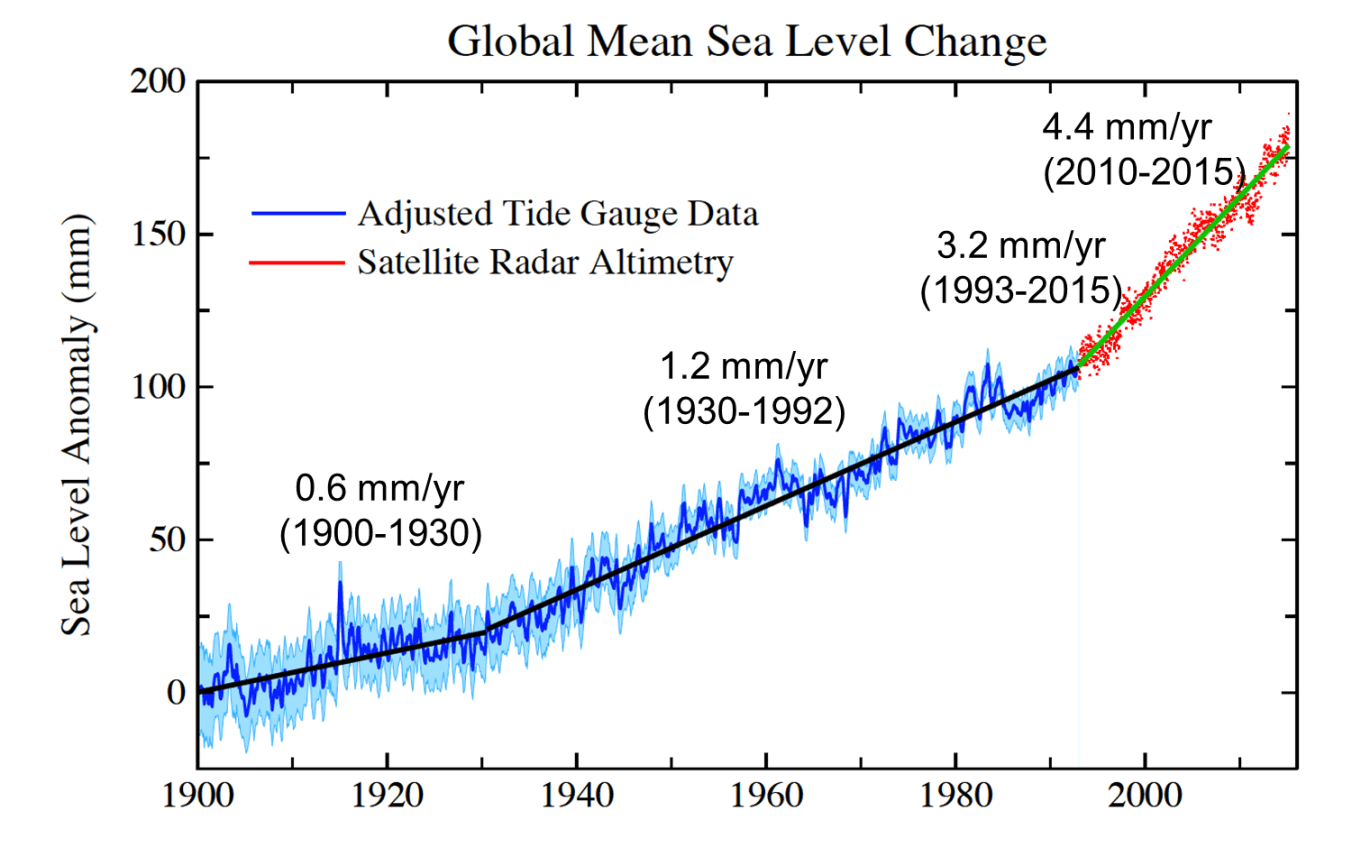
Global sea level rise is accelerating, despite Heartland Institute report’s claims otherwise
Claim:
Best available data show sea-level rise is not accelerating. Local and regional sea levels continue to exhibit typical natural variability—in some places rising and in others falling.
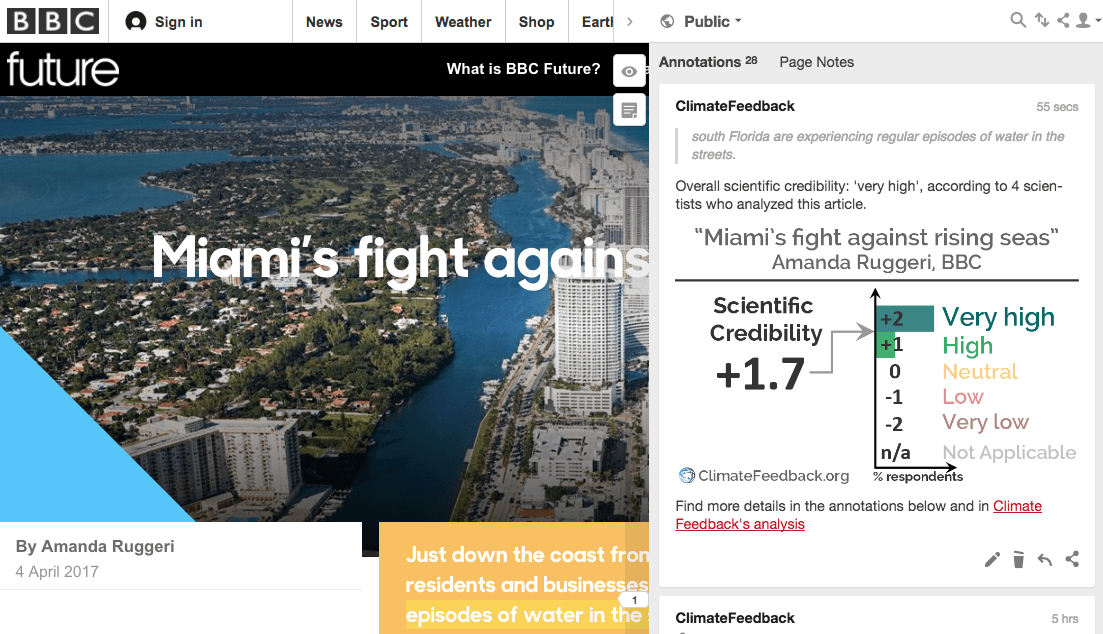
Analysis of “Miami’s fight against rising seas”
“The information in this story is generally correct—the frequency and severity of flooding is accelerating due to sea level rise, and the quoted scientists from NOAA and FAU are credible experts in this field.”
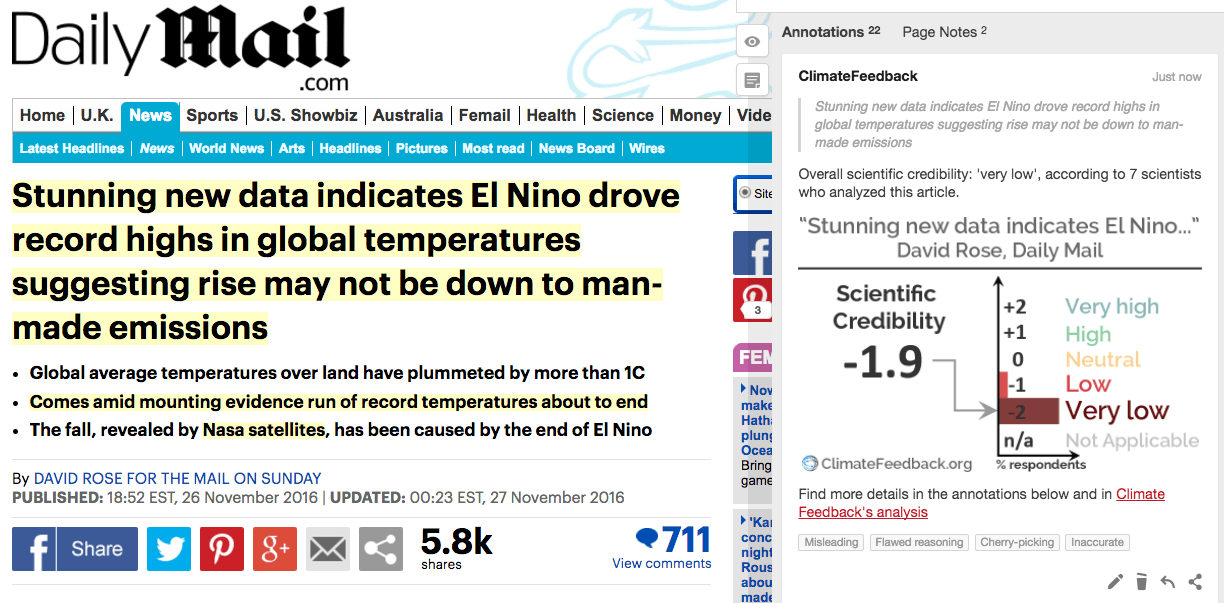
Analysis of "Stunning new data indicates El Nino drove record highs in global temperatures…"
This is an incredibly misleading article. It cherry picks a dataset taking measurements 2 miles up in the atmosphere only over land areas that disagrees with the other two datasets that examine the same values… The author is taking a normal modest cooling at the end of a large El Niño event and spinning it completely out of proportion.

Sea level rise is accelerating, and with it the risk associated with coastal storm surge, contrary to claim in Forbes
Claim:
Sea level rise, which was occurring long before humans could be blamed, has not accelerated.
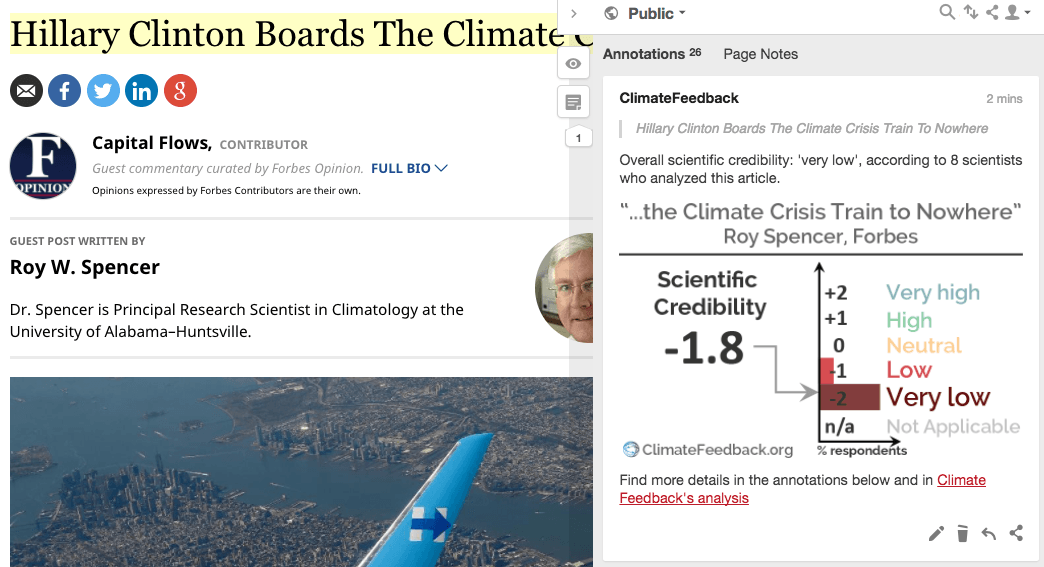
Analysis of "Hillary Clinton Boards The Climate Crisis Train To Nowhere"
“The article is inaccurate in several places and conveys that one must choose between solving immediate problems, such as poverty, and long-term risks such as climate change. We can do both, and indeed must do both if we take poverty seriously, since climate change disproportionately affects the poor.”
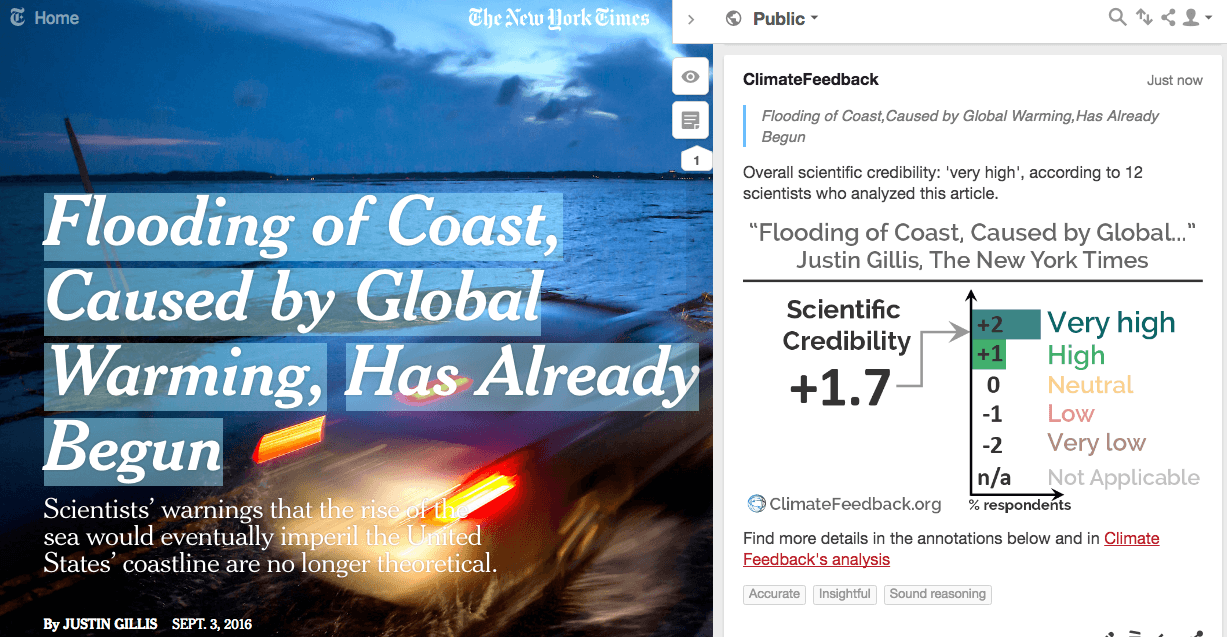
Analysis of "Flooding of Coast, Caused by Global Warming, Has Already Begun"
“The theory of sea-level rise and flood problems is pretty well understood — this makes the point that this theory is also happening now and can only be expected to get worse — sea levels have been rising on the US east coast for the last 150 years or more and even if current trends simply continue, impacts will continue to grow. As the article states, we actually expect a significant acceleration of sea-level rise in the coming decades meaning the impacts will grow more rapidly.”
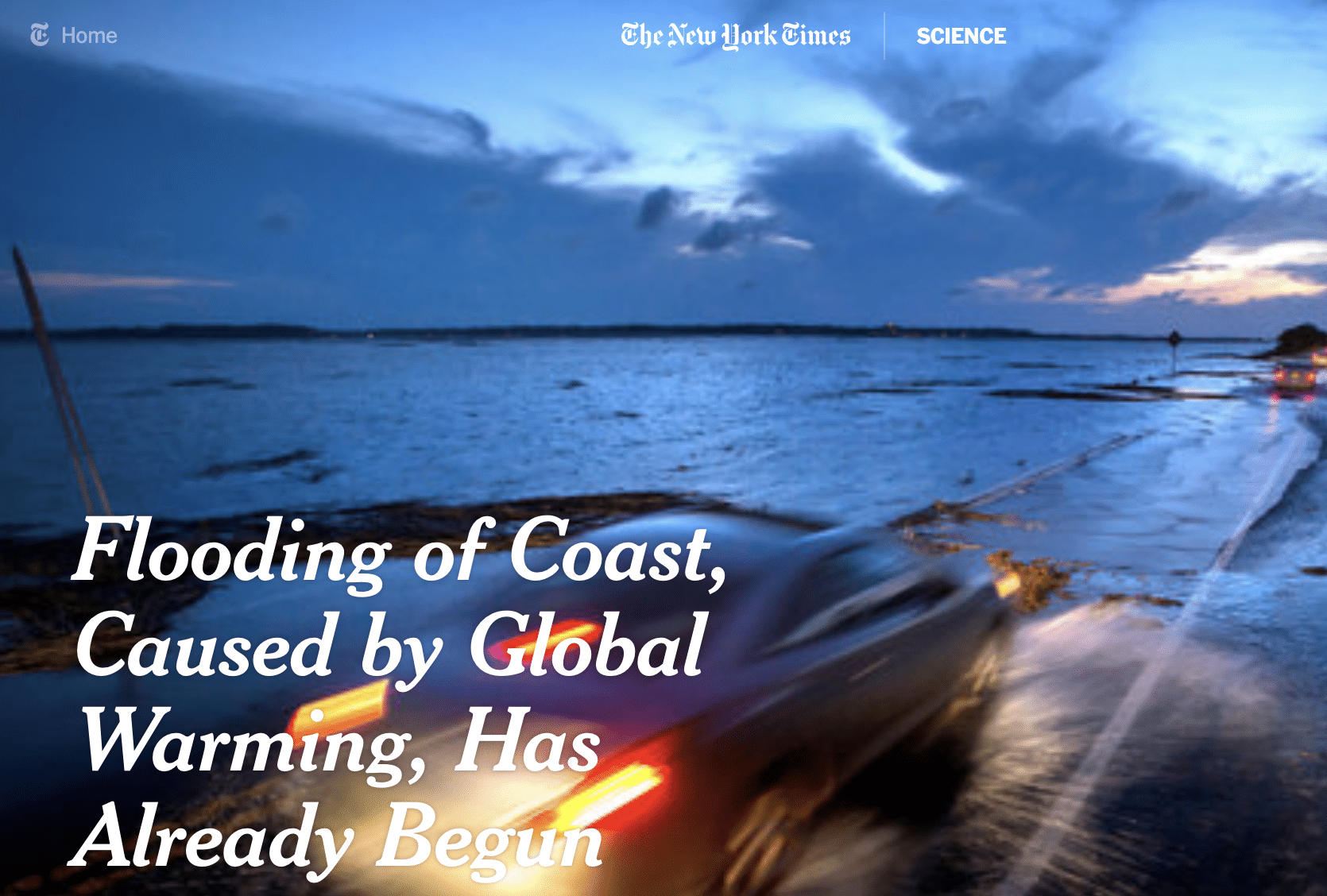
Sea level could rise by as much as 1 or 2 meters (3.3-6.6 feet) by the year 2100
Claim:
Sea level rise could reach six or seven feet by the year 2100.

